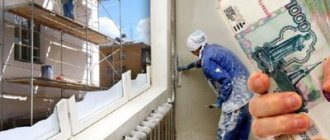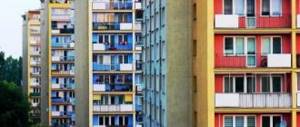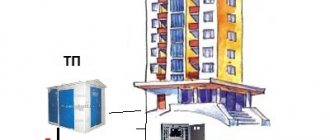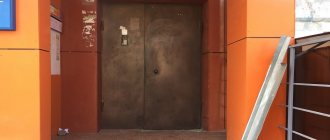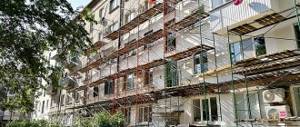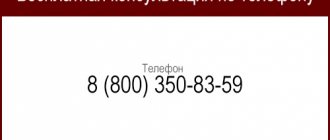Checking debt for major repairs
Before buying a residential property, you need to check whether the previous owner has any debts to pay for housing services and major repairs. To avoid unpleasant situations after moving to a new home, you should find out about all debts before concluding a transaction.
There are several options for how to find out the debt:
- use the State Services portal;
- obtain information from a single settlement center;
- contact the Capital Improvement Fund or homeowners association (HOA).
https://www.youtube.com/watch?v=wdEdsrEpKNE
Information can be found by personal account, premises address or receipt that the citizen has in his hands.
How to find out the debt for major repairs by address
In this article we will answer the following questions: what are the consequences of evading payment for capital repairs? where does the collected money go? who has the right not to pay? How to find out the debt for major repairs? Find answers to these and other questions in this article.
When can you not pay according to the Law?
According to the norms of the Housing Code of the Russian Federation, owners of real estate are required to pay monthly receipts for major repairs. Subsequently, the collected funds are used to maintain the multi-apartment residential building in a suitable condition.
Overhaul is necessary in the long term. This is the main indignation of citizens: funds are paid now, but will be distributed in the future. The law is clearly structured, the obligation has been introduced and is undeniable. In 2020, the Constitutional Court recognized the legality of the payment.
How to find out the personal account of the capital repair fund?
If for some reason you don't know whether payments have been made on major home improvements, or you have intentionally failed to make payments, you need to find out the exact amount owed as soon as possible.
How to find out the debt for major repairs?
- You have the right to contact the capital repair fund directly or the financial department of the management company that services your home and find out about the debt there.
The phone number can be found on the rent receipt or searched on the Internet by entering the name of the organization as a query. - Where can I see the debt for major repairs? Many capital repair funds have their own websites that provide a variety of services, including complete information on debts and payments made by residents.
- Often, management companies, along with rent receipts, send an additional invoice with the amount for major repairs.
If you already have a debt, then this will necessarily be reflected in the receipt.
Where and how to find out and check the debt on contributions for major home repairs?
By contacting the management company or regional operator with a written application, you can obtain information about your personal account.
The regional operator, as well as the management company, upon individual request, are obliged to provide homeowners with all available information about the receipt and expenditure of funds for a particular home.
Payment for major housing repairs is paid monthly, before the 10th, unless otherwise provided by regional legislation.
IMPORTANT! The invoice for major repairs of an apartment building below contains a table with data for a specific house: how much was accrued and paid to the capital repair fund, what is the total debt.
All information is given on an accrual basis, that is, the payer always has the opportunity to find out how much money has been contributed for the major repairs of his home.
Where do the funds go?
Funds collected for major repairs can be distributed in one of the following ways:
- the owners of the residential complex draw up a written agreement with their own service company, after which all funds received for major repairs are automatically transferred to the organization’s open account;
In this case, responsibility for the distribution of capital repairs lies with local governments, and not with the residents themselves.
Information!
The decision to store funds in this way is made through a vote of all residents of the apartment building.
- apartment owners decide to transfer funds to the regional capital repair fund. This method of storing capital repair contributions is appropriate in cases where the home owners have not previously entered into a contract with a service company.
In this case, responsibility for the distribution of capital repairs lies with local governments, and not with the residents themselves.
Attention!
Regardless of the method of storing funds, monthly contributions must be made no later than the tenth day of each month.
The money raised can go towards the following needs:
- Repair of water, gas or electrical supplies;
- Eliminating problems with the sewer system;
- Installation/replacement of elevators if their further unsuitability is revealed;
- Repair of the facade of a residential building, including roofs and foundations;
- Maintaining the suitable condition of the basement of the house (if they are privatized and are the shared property of the residents of the house);
- Garbage removal;
- Cleaning the local area.
Information!
The listed types of work are not carried out monthly, but as needed and in accordance with the most suitable time of year. For example, it is more rational to replace a roof in the summer.
Using State Services to obtain information about debt
The easiest way to find out whether a citizen has made contributions for major repairs is by using the State Services portal. The main advantage is that the information is provided remotely, meaning there is no need to visit authorized companies and submit an application.
The check is carried out online 24 hours a day. The main requirement for obtaining information is the presence of a registered entry on the portal.
The algorithm of actions looks like this:
- open the official website of State Services;
- register if the citizen has not previously created an account on the portal. To do this, you need to go to your personal account and click on the “Registration” button. Then the person enters the data of the act through which the identity and SNILS are verified. After receiving the SMS code on your phone, you will need to enter it for identification;
- pass authorization. To do this, enter your cell phone number and password. SNILS can also serve as an identifier;
- go to the “Services” tab, select the line “Apartment, land and construction”;
- open the item “Payment for housing and communal services”;
- click on the “Get service” button;
- enter your home address.
Next, the system displays payment data for the payment in question. If a citizen has a debt, this is reflected in the response to the request. The date of accrual of the debt and the category of payment are indicated.
You can also pay your accumulated debt online. To do this, you need to use a card issued by a banking organization or an electronic wallet.
State Services Website
How to find out real estate tax by cadastral number?
The procedure for challenging the cadastral value of real estate
How to find out the inventory value of a property by address?
The procedure for conducting an independent assessment of real estate to challenge the cadastral value
How to find the owner of a land plot by cadastral number?
Technical plan of the house for cadastral registration
The most reliable and accurate way by which you are guaranteed to be able to obtain the data you need on debts is by going to the official website of government services at https://www.gosuslugi.ru/ . But at the same time, using this service is quite difficult, since you will need to carry out a lengthy registration, which requires entering data from personal documents and confirmation.
If you have registration, then you will need to select the “Service Catalog” item in the header of the site and go to the “Payment for housing and communal services” section. There you can check all your debts for major repairs and utility bills by simply entering the desired address. If you cannot indicate the address accurately enough, then receipt numbers or a personal account for payment will help you find out about the debts.
The advantages of using the State Services website include:
- High reliability of service. On it you are guaranteed to find the necessary data;
- Versatility. Simply by entering the address you will receive all the data you are interested in;
- Accuracy. The government services portal provides only current data;
- Possibility of payment. All existing debts can be immediately repaid by transfer from a card or electronic payment.
few disadvantages to the State Services portal:
- Constant work on the service. While this is generally good, the feature you need may simply be blocked for a while;
- Difficulty during registration. Sometimes it’s faster to go to the house management and find out everything there than to collect all the information necessary for registration and enter it;
- Not very friendly interface. It’s quite easy to get lost on the site or choose the wrong service.
Arbitrage practice
Extensive judicial practice has developed in this category of cases, because citizens and organizations often refuse to pay for major repairs. For example, the decision of the Moscow Arbitration Court in case No. A40-265503/18-61-1993 dated August 30, 2020, which provides for the refusal to satisfy the claim.
The reason for this decision was that the plaintiff missed the statute of limitations, which the defendant stated in court. Despite the presence of debt for major repairs and the obligation to pay these fees by law, the person was released from liability, since the management company filed the claim late.
Thus, debt for major repairs can be studied using several options, including through online contact with authorized organizations. In some situations, failure to make a payment will be justified.
It is not possible to “disown” payments, since federal law states that this is the responsibility of every owner of residential and non-residential premises in apartment buildings.
If you systematically do not make the required contributions, then after 3 months the management company has the right to sue the defaulter.
It is there that the question of whether a debt really exists will be decided, as well as what measures need to be taken in this case.
If you decide not to pay for major repairs, then how to do it legally and on what grounds is described in this article.
Despite the fact that the amounts for major repairs are small, and therefore the debts are within several thousand, the debtors still refuse to pay.
It must be said that the lion's share of claims are satisfied in favor of the Criminal Code.
In this case, bailiffs will solve the problem with such tenants. They will visit the willful defaulter to collect the required amount, and if he is not at home, or he deliberately does not open the door, the bailiff will leave a written notice.
The procedure will be repeated until the debtor pays.
How to pay for major repairs online
ATTENTION! If a citizen belongs to one of the categories, and the Management Company charges payments and sends receipts, then he has the right to appeal the actions of the Management Company in one of the available ways. The best options are a complaint to the State Housing Inspectorate or a lawsuit.
- Go to the FKR website. To determine the required portal, the address of the property is used. If the object is located on the territory of the Rostov region, then you need to use the website of the fund of this subject, and not any other.
- Create a personal account. Enter your full name, address, email, mobile phone number. Information from official documents is required. It is recommended to check the text for typos.
- Activate your personal account by confirming it by mail and telephone. You will need to follow the link that will be sent by email and enter the code sent in the SMS message.
- Go to the “Payments” tab, then “Payment”, select the service provider, indicate the address and personal account number. The system will fill in the remaining parameters automatically.
- Make a payment using one of the methods (for example, using a card or e-wallet).
Contacting the HOA or ERC
Where to find out the amount of debt is not specified at the legislative level. In practice, for this purpose you can use the websites of the Unified Settlement Center or Homeowners Association.
It will not be possible to indicate the exact sequence of actions, since each region has its own site structure.
On average the algorithm is like this:
- log in to your personal account;
- go to the services section;
- find an option to obtain information about debt and account balance.
Before performing these actions, you will need to clarify information about which organization is providing major repairs to the premises in which the citizen lives. The Capital Repair Fund provides such information.
Website of the fund or management company
If the bank did not help you, then the last way is to contact directly the websites of the organizations that are responsible for collecting these same payments for capital repairs. But it is worth considering that there are only a few of them. In this case, the contact path is completely identical to working with a bank:
- Register your personal account;
- In your personal account, select the function responsible for issuing receipts for utility bills;
- The address is indicated in the order field of the receipt.
This is the last way to find out information about debt for major repairs using the Internet. So let’s move on to the most reliable ways to obtain information - personally contacting the organizations responsible for renovating apartments and accepting payments.
What to do if the debt for major repairs (overhaul) remains from the previous owner?
Few people know that, unlike debts for rent, payments for major repairs that are not made on time are transferred to the new owner. This is quite logical, because you live in this apartment, and not the one who sold it.
Even if you didn’t know about such an article in the Housing Code, it will not exempt you from payments.
Going to court will not help in this case.
Of course, the owner can look like a very decent person and swear that he has no debts.
So how do you find out the debt for major repairs?
In order to avoid getting into a similar situation, before purchasing a home, find out about the presence or absence of debt for major repairs.
But practice shows that in this situation it is best to contact the management company directly, where the buyer will be provided with reliable information.
There are cases when the debts are very small, and their payment will not become a serious burden for the new owner, but there is a possibility that the amount will reach several tens or hundreds of thousands. This once again proves the need to be careful when purchasing real estate.
Russian housing legislation clearly defines that all owners of residential premises contribute to the fund for capital repairs of apartment buildings.
If you do not have the financial ability to fulfill the legal obligation to pay contributions, you can deprivatize the apartment, that is, transfer it to the ownership of the municipality.
After completing this procedure, the municipality will pay for major repairs, and you will live in the apartment under a social tenancy agreement.
IMPORTANT! If the owner of the premises has nevertheless accumulated a debt on contributions, then in the event of the sale of an apartment or non-residential premises, or after the transfer of rights to this property to the heirs, the debt will pass to the new owners.
Therefore, it is necessary to use all opportunities to reduce the payment amount (contribution benefits) or submit documents to receive a subsidy from the social protection authorities.
Often citizens turn to one or another forum with questions: “I can’t pay for the capital repair fund.” If you have problems with payment, contact your management company or your HOA. They are interested in resolving the issue as quickly as possible and will provide you with the correct payment details.
When purchasing a property with debt
It happens that the new owners purchased an apartment that has a debt for major repairs. This indicates that the previous owner did not pay the dues on time. Civil legislation does not imply that when purchasing real estate, all debts are automatically transferred to the new owner. But upon closer examination of the circumstances, it becomes clear that this is not the case. According to Article 158 of the Housing Code, the debt for major repairs is transferred to the new owner after registering the property in his name.
Therefore, the purchase of an apartment should be accompanied by a thorough check of the debts and the owner himself. It would be appropriate to enter into an agreement under which all existing debts become the responsibility of the new owner. With such agreement, all further troubles will be excluded, and the total cost of the apartment will decrease due to the presence of debts. If the buyer categorically refuses to assume the debts of the previous owner, then this is reflected in the documents in order to avoid various kinds of disagreements.
Visiting the FRC or HOA
To find out the debt using this method, you need to contact the homeowners association or the Capital Repair Fund. You will need to have a certain list of documentation with you.
It includes:
- a certificate confirming the registration of ownership of housing or another act indicating the person’s ability to use the premises;
- an act by which the identity of the applicant is verified. The best option is if the document contains a stamp indicating registration at the address at which the information is requested.
A citizen who is temporarily or permanently registered in an apartment, or is the owner of the premises, has the right to contact these organizations. The HOA or FRC issues a response to the application on the day of application. The person will need to wait about 20 minutes.
Consequences of non-payment of contributions for major repairs
According to the Izvestia newspaper for 2020, 20% of Russians categorically refuse to make contributions for major home repairs.
Unfortunately, the number of debtors is only increasing.
Of course, the authorities know about this, and therefore tighten control in every possible way.
Those who live on social rent may be deprived of their housing for failure to pay the amount established by law. Such cases are rare, but there are already precedents.
Willful defaulters will have their hot water and electricity turned off and the sewerage system shut off, even if you only owe money for major repairs.
Municipal authorities are trying to deal with debtors in different ways, some common methods include officially published lists of debtors, banners on city streets and advertisements calling for debt repayment, all just to shame defaulters.
Since 2020, some regions have created special committees dealing with debtors for major repairs, and in the future it is planned to tighten measures for debt collection.
The owner of the premises will not be able to avoid punishment for refusing to pay the fees in question. If you do not deposit funds into the Fund on time, penalties will be applied to the person.
The provisions of 159 of the Housing Code of the Russian Federation establish the citizen’s obligation to pay for major repairs. Debt accumulates behind a person and it will not be possible to write it off, regardless of the circumstances.
Sanctions can be expressed in:
- a penalty that begins to accrue from the 31st day of the debt. The value is 1/300 of the refinancing rate developed by the Central Bank. The collection period in this case is not limited; until the debt is repaid, the person will be obliged to contribute funds;
- trial in court. Members of the HOA or representatives of municipal authorities have the right to appeal to the judicial authority. In this case, the appeal is made after six months have passed from the date of the last transaction to deposit funds into the account;
- reimbursement of costs that involve legal recovery. This measure is used when it is determined that a citizen purposefully does not contribute funds.
A citizen can receive a certificate of no debt only after he has paid all imposed fines and penalties.
What consequences may there be for failure to pay the capital repair fee?
How to check the debt - decided. However, even knowing about its existence, not all residents are in a hurry to fulfill such an obligation. Meanwhile, the regulations strictly establish that this is precisely the obligation, and not the right of the owners. Therefore, the accumulated debt for major repairs will undoubtedly lead to undesirable consequences.
At the state level, the following penalties are established for such offenses:
- accrual of penalties (calculated from the 31st day of debt appearance and is 1/300 of the Central Bank refinancing rate of the total debt);
- legal proceedings (initiated when debt obligations accumulate over a period of more than six months).
With all this, it is worth considering that if you wait until the case is heard in court, you will need to pay not only the amount itself, but also reimbursement of legal expenses, as well as pay for the work of bailiffs.
Limitation period for debt for major repairs
For this type of lawsuit, the standard statute of limitations is three years. Thus, debt for major housing repairs is collected only for this period and no more. Similar cases have occurred when the owner of the apartment has never paid the fees since they were introduced as mandatory. Now everything is strictly monitored and it is unlikely that it will be possible to prolong the period of non-payment for many years.
Consequences of non-payment of contributions for major repairs
The Housing Code indicates the possibility of exempting citizens from paying contributions to the fund in question.
The obligation to pay is not fulfilled if:
- the apartment building where the person lives has emergency status. In this case, debt collection is not carried out if there is an accident report issued by employees of the municipal authority;
- property is subject to temporary seizure by government officials to meet the needs of government agencies. It is provided that for the time that the housing is not at the disposal of the person, the obligation to pay contributions is removed. The basis for the seizure of premises is, for example, the resettlement of refugees;
- The apartment was purchased in a building that was recently put into operation. Depending on the region in which the person lives, the period of exemption from payment varies from one year to 3 years.
You can clarify this information by contacting the administration of the municipality in whose territory the citizen lives.
Who is required to pay for major repairs?
If you own any premises in an apartment building, you are required to pay money for major repairs of apartment buildings.
Payment is not imposed on:
- homeowners in houses located on land plots for which the authorized bodies have made a decision on the alienation (seizure) of this plot for state or municipal needs;
- tenants (tenants) of municipal housing.
ATTENTION! Owners of apartments in buildings in emergency technical condition are not payers of contributions (provided there is a regulatory act recognizing the building as unsafe and subject to demolition).
By law, all owners of residential and non-residential premises in apartment buildings, as well as legal entities, are required to pay for major repairs.
Only tenants can choose not to pay for this service, since landlords are required to do this for them.
However, some owners require that payments be made exclusively by tenants, but this is illegal.
Some categories of citizens have benefits for the corresponding payments, for which the state contributes from 50 to 30%.
These include:
- liquidators of the accident at the Chernobyl nuclear power plant, as well as those who suffered from radioactive radiation;
- WWII veterans and labor veterans;
- widows of WWII participants;
- persons over 70 years of age;
- families with the status of large families, or those in which there is a child with a disability.
How to find out the debt for major repairs in Moscow
The city is working as transparently as possible in the implementation of the capital repair program and is ready to report to the owners of premises for every ruble deposited into the fund account. That is why mos.ru became the first regional government services portal to launch such a service.
Regardless of how the invoice is issued, it must be paid, like a receipt for an apartment, by the 10th of each month. If the owners have not independently determined the amount of the fee for major repairs at the council, the minimum rate approved in the Sverdlovsk region will be used for charges - 9 rubles per square meter of residential premises.
Penalties: fines
If there are debts for the corresponding service, a percentage of the fine is charged, which the owner is also obliged to repay.
On January 1, 2020, a new system for calculating penalties came into force.
Interest for non-payment will be accrued only from the 31st day the debt arose. If the debt is not repaid before the 90th day, the penalty will be 1/300 of the refinancing daily.
For those who are not afraid of such measures, from the 91st day, the rate will increase significantly and will be 1/130 for each day of overdue payments.
All penalties incurred before January 1, 2020 will have to be paid according to the old system.


